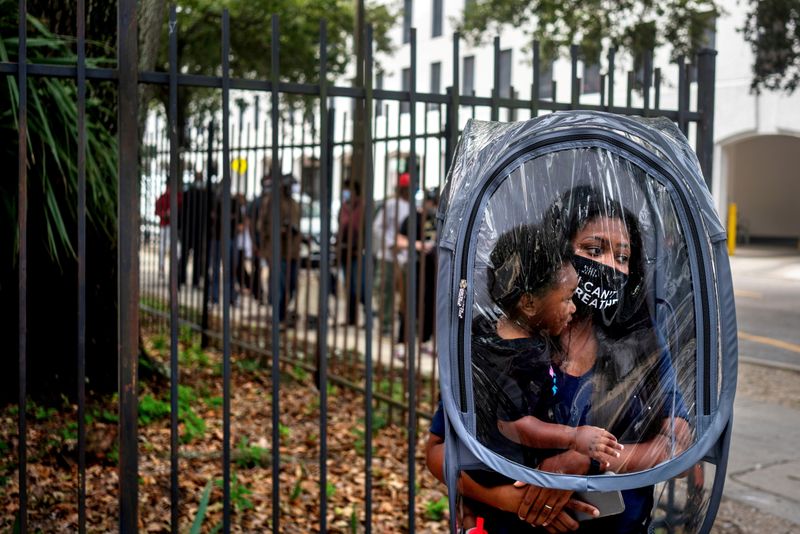By Brad Brooks
(Reuters) - In the end, her wait was worth it.
Dana Clark stood in line for eight hours to vote for Joe Biden in New Orleans on Oct. 19 amid the crush of early voting.
She did it while holding her squirming 18-month-old son, Mason, both of them ensconced in a vinyl "pod" in a bid to ward off the coronavirus.
That Clark is Black, a woman and had previously been blocked from voting because of documents lost amid the destruction of Hurricane Katrina in 2005 made her all the more determined to cast her ballot in what she considered an historic election.
A Reuters photo of Clark - her face a portrait of resolve - went around the globe, garnering her attention, a symbol of what many Black Americans said they felt was an existential vote after a summer of racial protest.
"The history of the struggles and obstacles created to block Black Americans from voting just repeats and repeats, and you see it in the image of me waiting in line for hours," said Clark, an elementary school teacher. "We have to learn, 'What can we do different?' That begins with this, my vote, and afterward actively following up to make sure that those we put in office dismantle these barriers to voting."
Asked what the significance of a having a woman of color as vice president, Clark replied: "It's 2020! It's about time!"
"We've been fighting for minority rights and women's rights for so much time. To have Kamala representing us in that office means everything," she said. "It feels like we have a voice now."
Clark saw the alert that Biden had won while at the soccer game of her older son, Jonathan, 9.
She said that Biden's win was a day she had been praying for after witnessing so much unrest this summer.

"I feel confident," she said, "that the country will change and be a better, safer place for me to raise my Black sons."